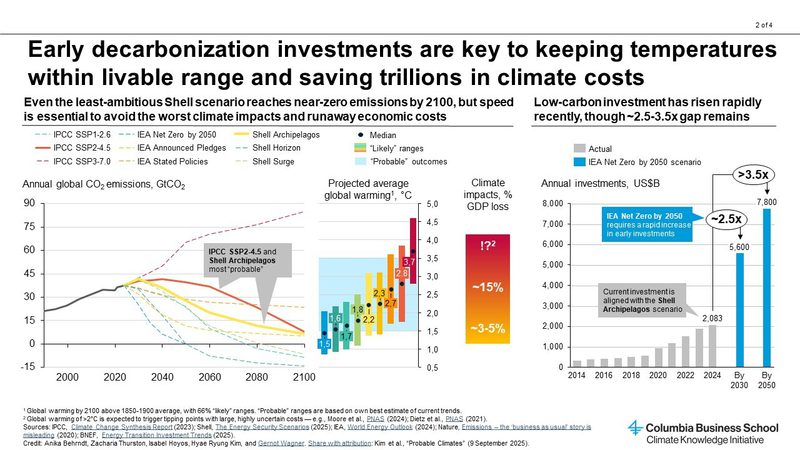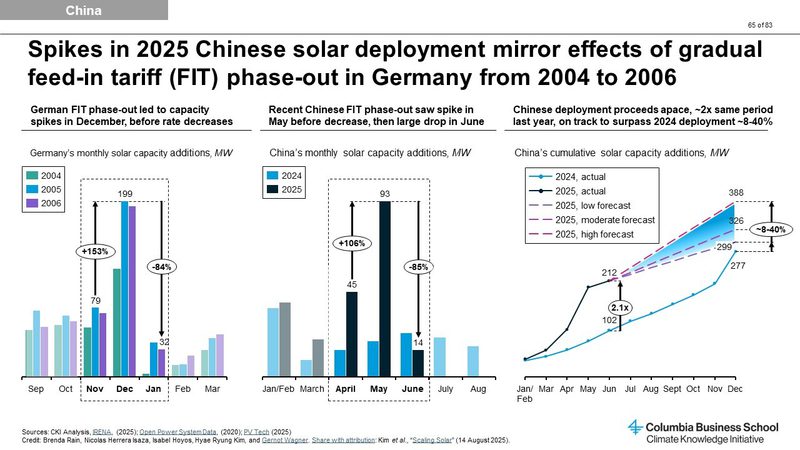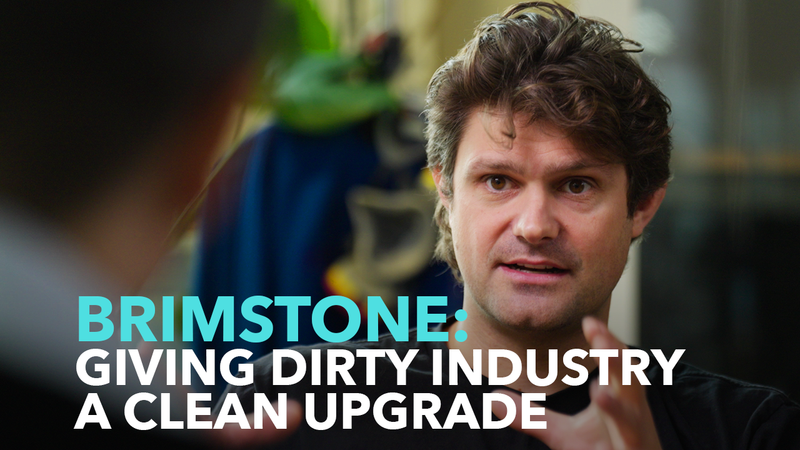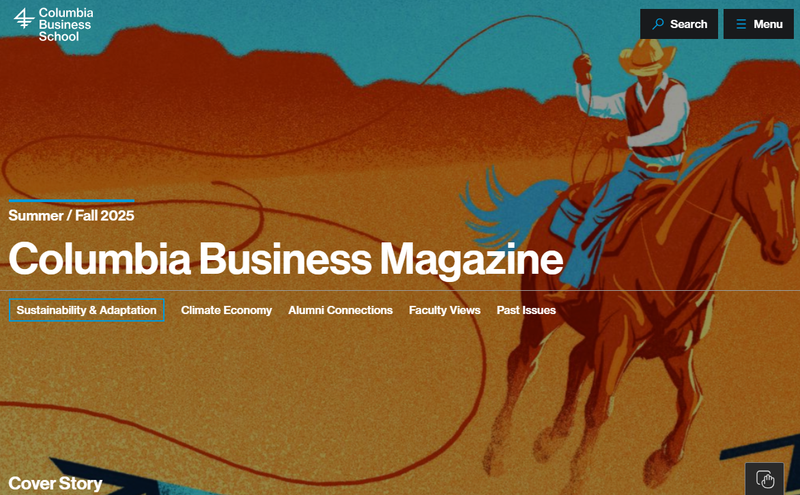Business & Society: Climate Change
Columbia Business School

Research, teaching, writings, and talks related to my appointments at Columbia, hosted by Columbia, and/or published by Columbia.
Columbia Business School

Columbia Business School Spring 2026 B-term course

Columbia University

Spring 2026 A-term course

Spring 2026 A-term course

Columbia Business School Climate Knowledge Initiative

Spring 2026 January Block Week

Columbia Business School Case

Columbia Business School

New York, NY

Columbia Business School

Columbia Business School Case

Columbia Business School

Columbia Business School

Columbia Business School Climate Knowledge Initiative

A net-zero world by 2100 is likely inevitable, but the next decade will be critical for securing a livable future.

Columbia Business School Executive Education

China’s Solar PV installations dropped 85 percent in June after a planned subsidy phase-out. But far from a retreat from renewables, the country's energy policy reforms reflect an increasingly mature and competitive solar industry.

The YEARS Project mini-documentary

by Jonathan Sperling
